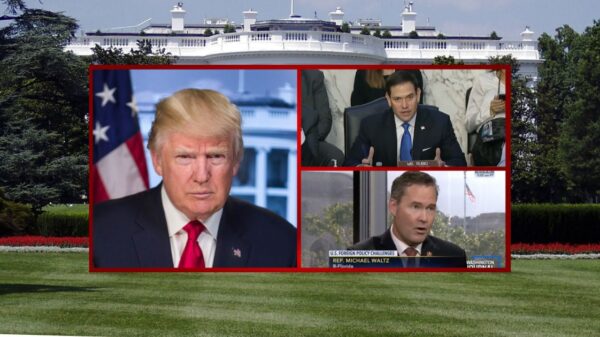This week, U.S. Sen. Marco Rubio, R-Fla., joined fellow Republican U.S. Sens. Susan Collins of Maine, John Cornyn of Texas, Tom Cotton of Arkansas, Chuck Grassley of Iowa, Rob Portman of Ohio, Ben Sasse of Nebraska and Todd Young of Indiana to send a letter to U.S. Attorney General Merrick Garland requesting a detailed briefing on the reported U.S. Department of Justice’s amnesty program, which would allow U.S. academics to disclose past foreign funding without fear of prosecution for their disclosures.
The full text of the letter is below.
Dear Attorney General Garland:
A January 2021 Wall Street Journal article indicated that the Department of Justice (DOJ) was “weighing an amnesty program under which U.S. academics could disclose past foreign funding without fear of punishment for their disclosures.” That article further indicated that “High-level officials … have discussed the program in recent months, and circulated a draft proposal for it.”
It has come to our attention that DOJ is planning to implement this amnesty program within the next few weeks, just months after Congress took action to deter foreign influence in academia. In section 1299C of the National Defense Authorization Act (NDAA) for Fiscal Year 2021, P.L. 116-283 (Jan. 1, 2021), Congress required the Secretary of Defense and other government agencies to work with higher education institutions to limit foreign influence and exploitation of U.S. technology within the Department of Defense research, science and technology, and innovation enterprise. In addition, section 1281 of the NDAA for Fiscal Year 2020, P.L. 116-92 (Dec. 20, 2019) built on a provision from the prior year’s NDAA, requiring the Secretary of Defense and other government agencies to provide training and resources to limit foreign influence, protect national security information, and protect against threats to institutions of higher education, including counterintelligence information developed for academic researchers based on identified threats.
Yet despite these congressional initiatives – as enacted in recent laws – DOJ has not consulted with Congress on this amnesty program. It is also our understanding that DOJ did not properly consult with the relevant Inspector General community. Inspectors General from large grant-making agencies, such as the National Science Foundation and the National Institutes of Health, are on the frontlines of combatting grant fraud by corrupt researchers seeking to take advantage of the openness and funding that the U.S. research enterprise provides.
We applaud federal prosecutors for bringing more than a dozen criminal cases against researchers and professors who allegedly stole intellectual property or failed to disclose partnerships with foreign governments, including with the People’s Republic of China (PRC). We are concerned about the effect that this amnesty program will have on those ongoing criminal cases and the signal that it sends to future researchers contemplating breaking U.S. law to steal research or hide affiliations with foreign governments or militaries. According to DOJ’s January 20, 2021 press release, Dr. Gang Chen – the individual cited in the article – was indicted and charged with holding “various appointments with the PRC . . . often in exchange for financial compensation”, and “was serving in several advisory roles for the PRC and PRC entities [when he] applied for and obtained a U.S. Department of Energy (DOE) grant in order to fund a portion of his research at MIT.”
To better understand this significant and potentially deleterious impending policy change, please provide a briefing detailing the scope, nature, and timeline of DOJ’s amnesty program no later than May 12, 2021.
America’s successful research enterprise is built on reciprocity, integrity, and transparency. These values foster a free exchange of ideas and ensure that researchers and institutions receive the benefit of hard work. As a result, America attracts the best and brightest. It needs to stay that way. But the United States must also take reasonable steps to protect taxpayer-funded research from theft, diversion, and ultimately weaponization against our own long-term national interests. This is a complex problem, but an amnesty program rewarding individuals who broke federal law to steal U.S. taxpayer-funded research is simply not the answer.

















